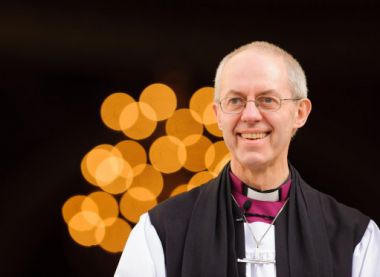What we talk about when we talk about evangelism

The story goes that when the British explorer Joseph Banks landed in North Queensland in 1770, he saw a kangaroo for the first time. Puzzled to know what this animal was, he pointed to the animal and asked a local man. "I don't understand you," replied the man, which in his Aboriginal mother tongue of Guugu Yimithirr is just one word: "Kangaroo."
For years it was popularly believed that to call these animals 'kangaroos' was based on a profound and embarrassing misunderstanding.
Evangelism is such a word. For Christians, it's the name for an activity that some love and others hate – it's a passion for some and an embarrassment for others. For non-Christians, it's a word that can send them running to the hills, feeling they are in danger of having something 'done' to them. (I wonder which of these descriptions fits you – and what you've experienced in the name of evangelism to make you feel this way?)
Given all this controversy around the word, it was no surprise that when, on taking office last year, I declared evangelism as one of the three priorities for my ministry. Some people thought I was profoundly misguided, while others jumped for joy.
However, it's my belief that if only we truly 'got' evangelism, we, the Church would live to show what it meant. And to 'get' it means to receive it, and to give it. Continually. And if we lived what we spoke of, and spoke of what we lived, no-one would have to point at the Church and wonder what it was for.
This Pentecost the Archbishop of York and myself are calling everyone who counts themselves as a follower of Jesus, to join us in asking the Holy Spirit to work across the country in our parishes and communities, our friends and our neighbours, and in his Church that the Good News of Jesus Christ can be proclaimed, heard, lived and trusted. We are doing this for three reasons.
First, because 'evangel' means literally the proclamation of 'good news'. In the New Testament book of 2 Corinthians, St Paul says "we are convinced that one died for all, and therefore all died. And he died for all, that those who live should no longer live for themselves but for him who died for them and was raised again". In Jesus, God has chosen to effect life for us, to make all the difference for us, to free us by bringing us grace, mercy and hope. This is the most wonderful news any of us could ever receive. Following Jesus is the best decision any person can ever make. We are convinced of this.
Second, because we cannot persuade people of this fact, or help them see it on our own – only God can do this. The Holy Spirit is the only one who can work to open someone's eyes to glimpse the beauty of Jesus, or unstop someone's ears to hear his voice inviting them to receive the words of life, or free people's feet from the things that keep them from following. We must pray for the work of the Holy Spirit on and in each person, in every community in this country.
Third, because as a Church we know we cannot do this on our own. The task before us cannot be overestimated. We could easily be disheartened. But God never leaves us on our own, he never throws us back on ourselves. He sends his Spirit to commission us, send us, empower us and help us present Jesus Christ – his life, his death, his resurrection – to each and every person.
This is what we talk about when we talk about evangelism. Or more accurately, who we talk about when we talk about evangelism. Because it is all about issuing the invitation of Jesus Christ to follow him. And that is an invitation which is issued to all.
Have you received it yet? Have you accepted it yet? Are you willing to be used to set this invitation before others?
Find out more and download prayers for evangelism at: www.usewords.org











